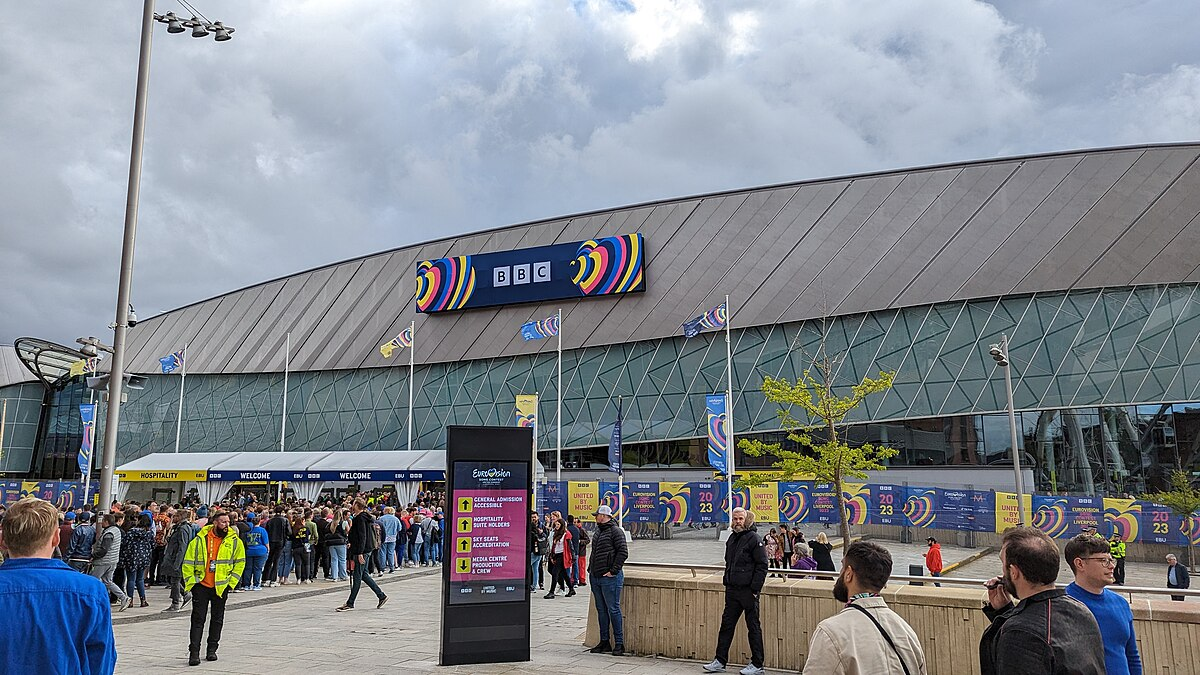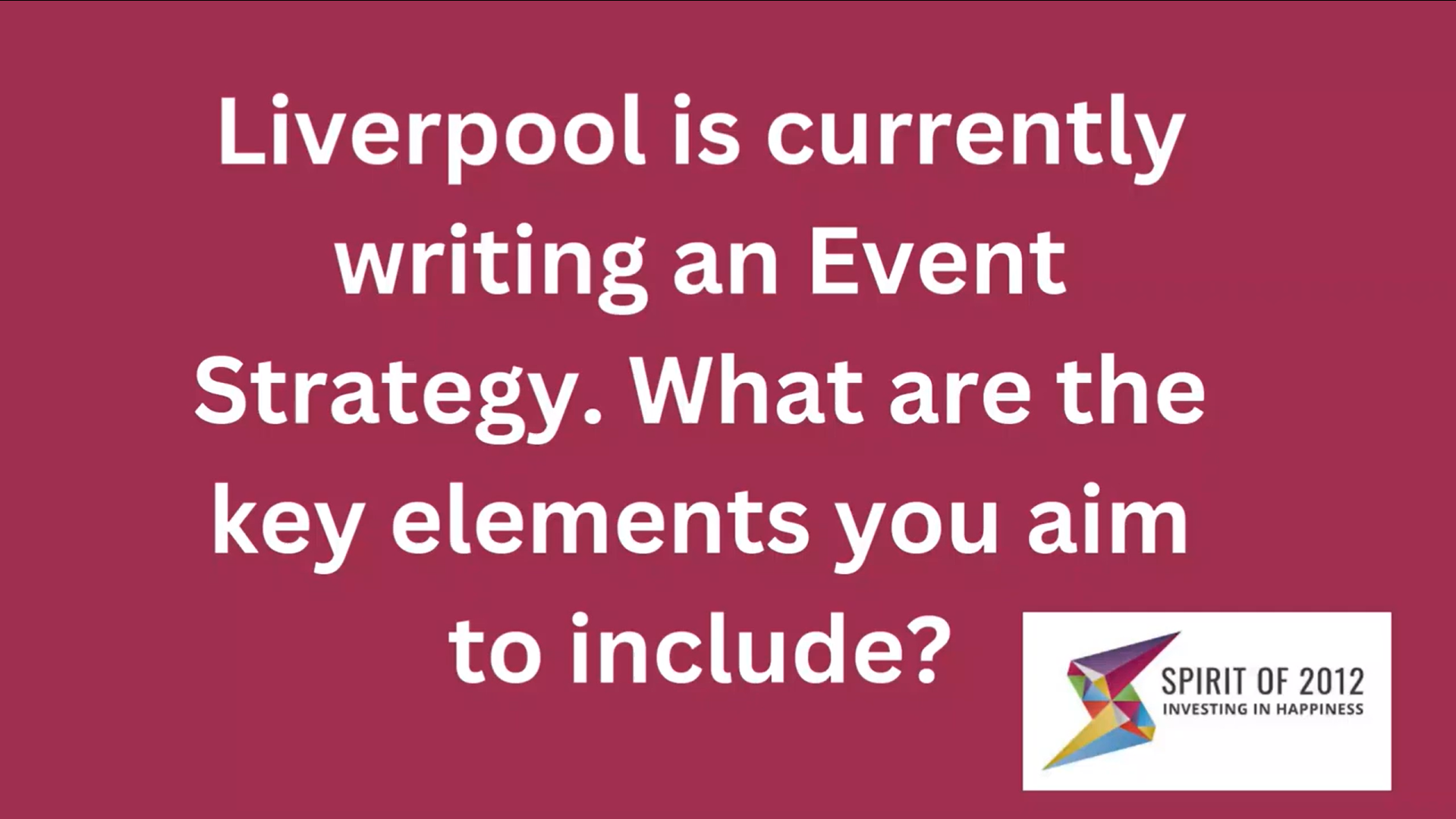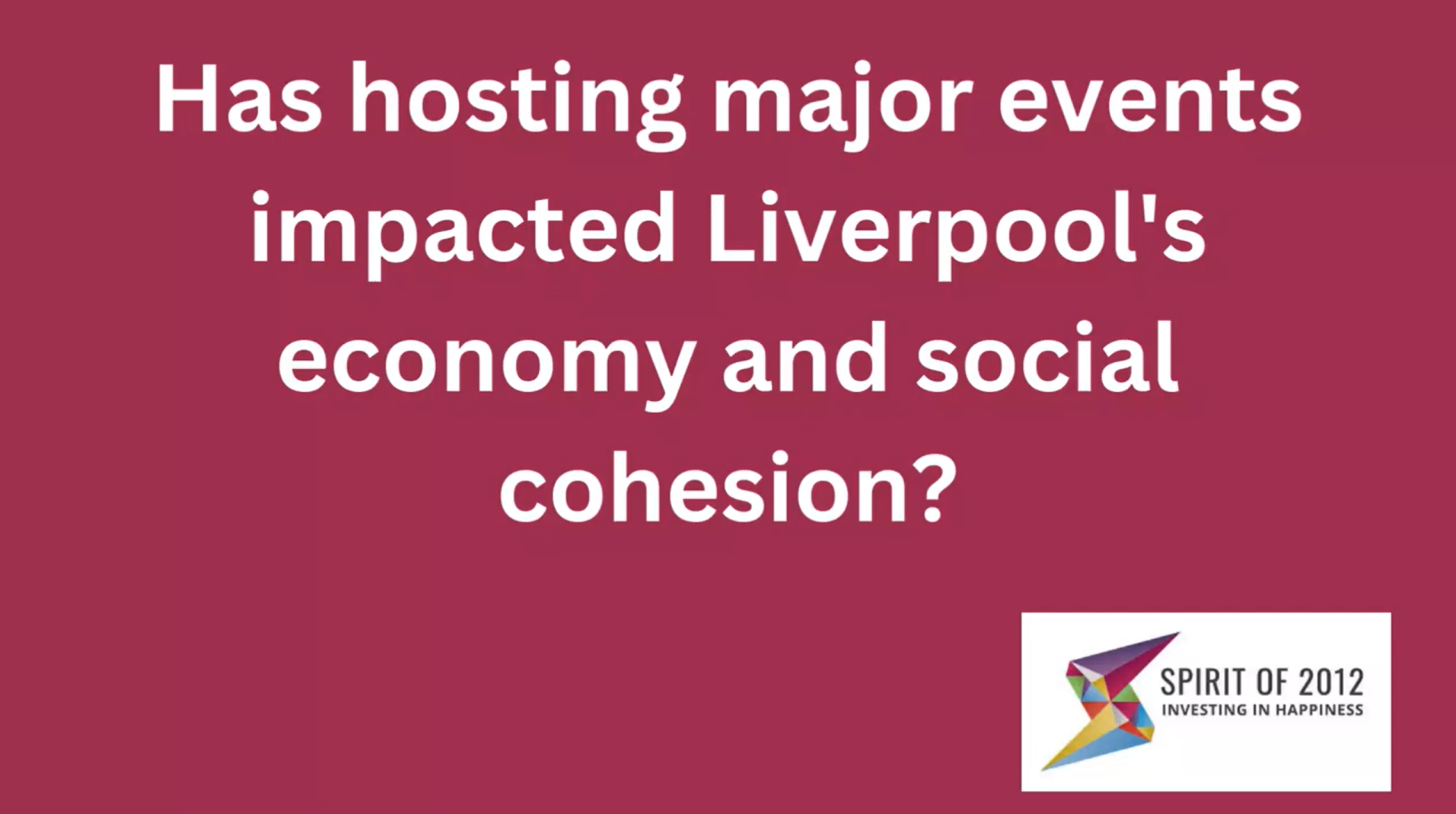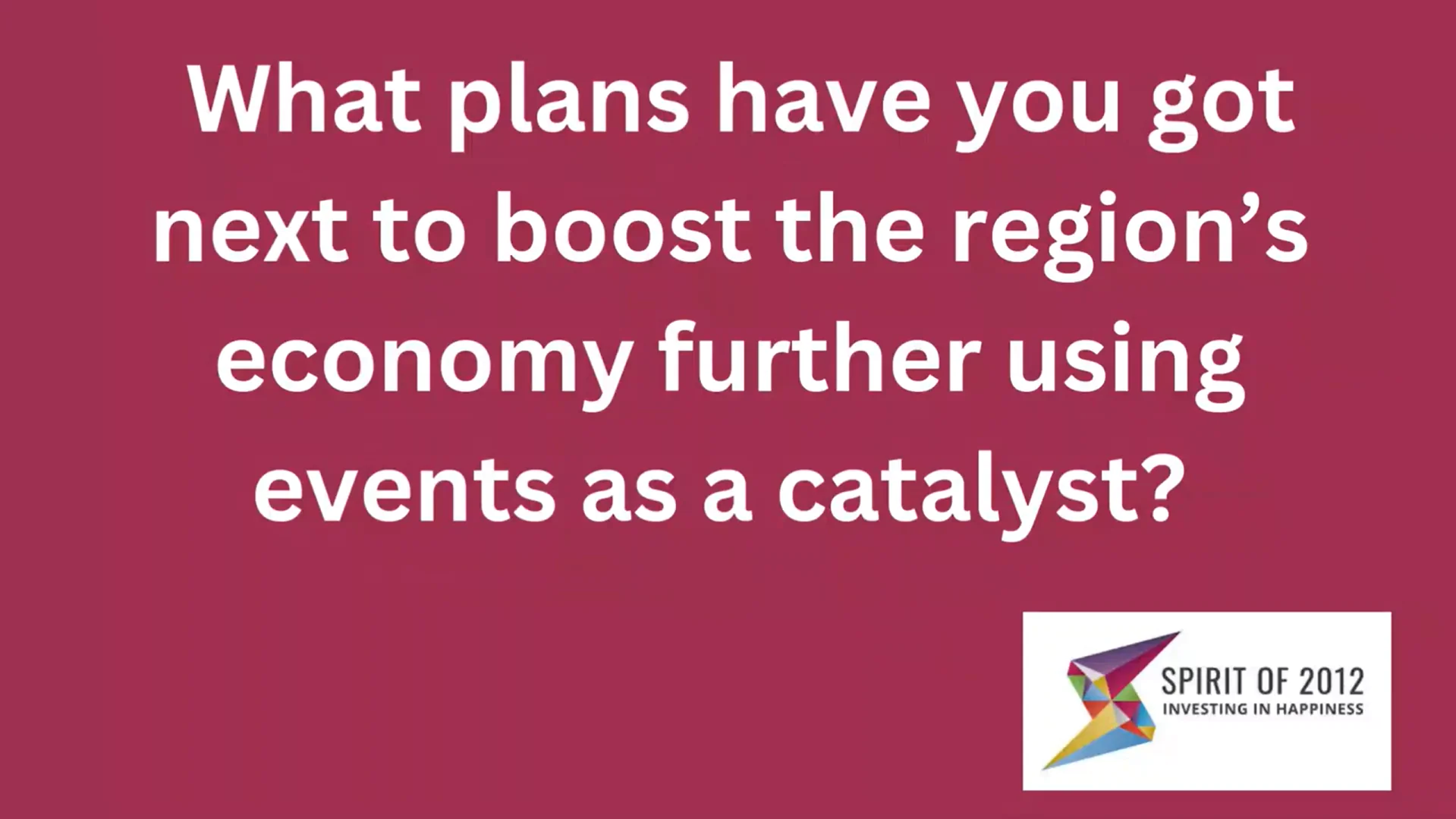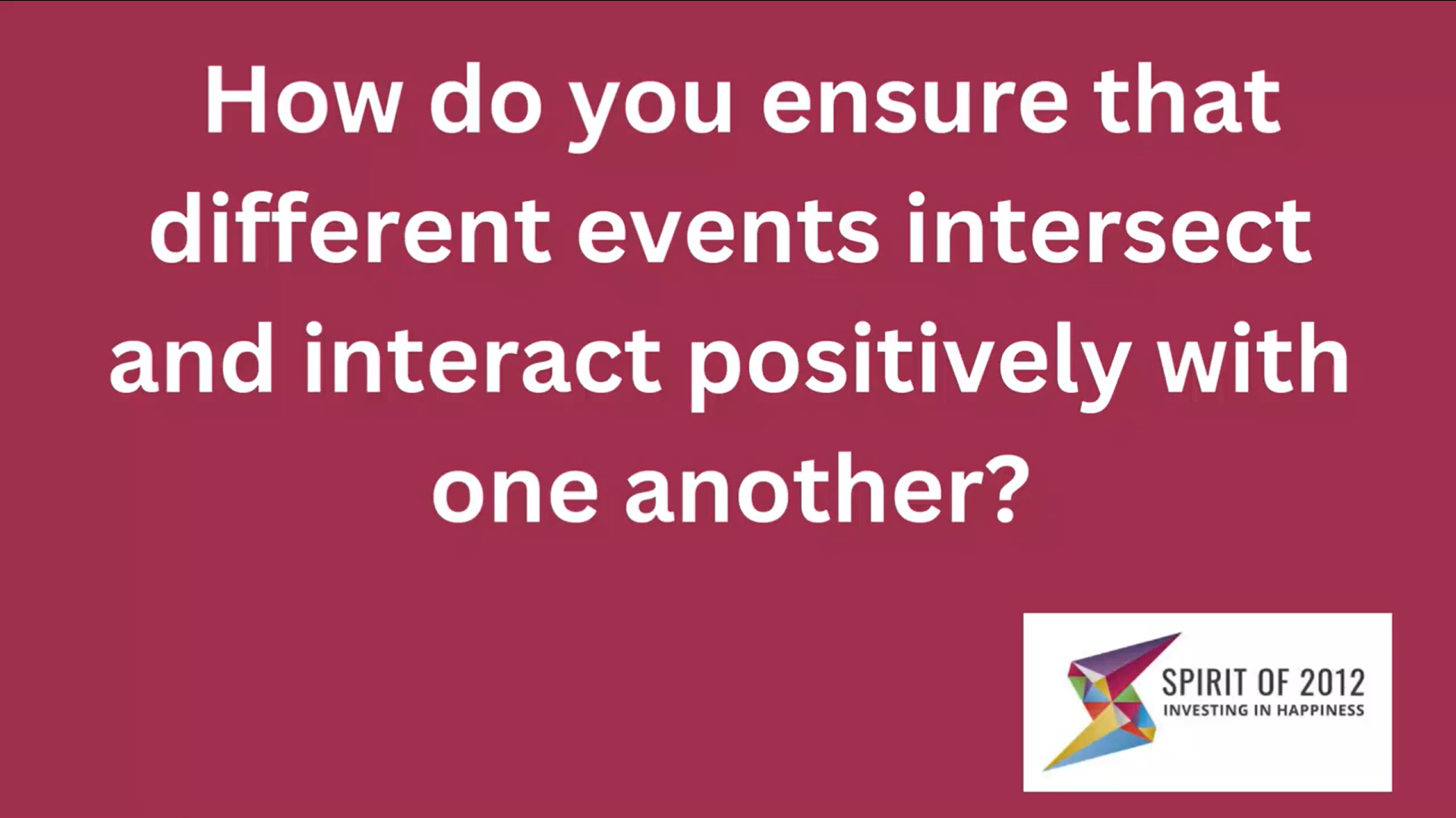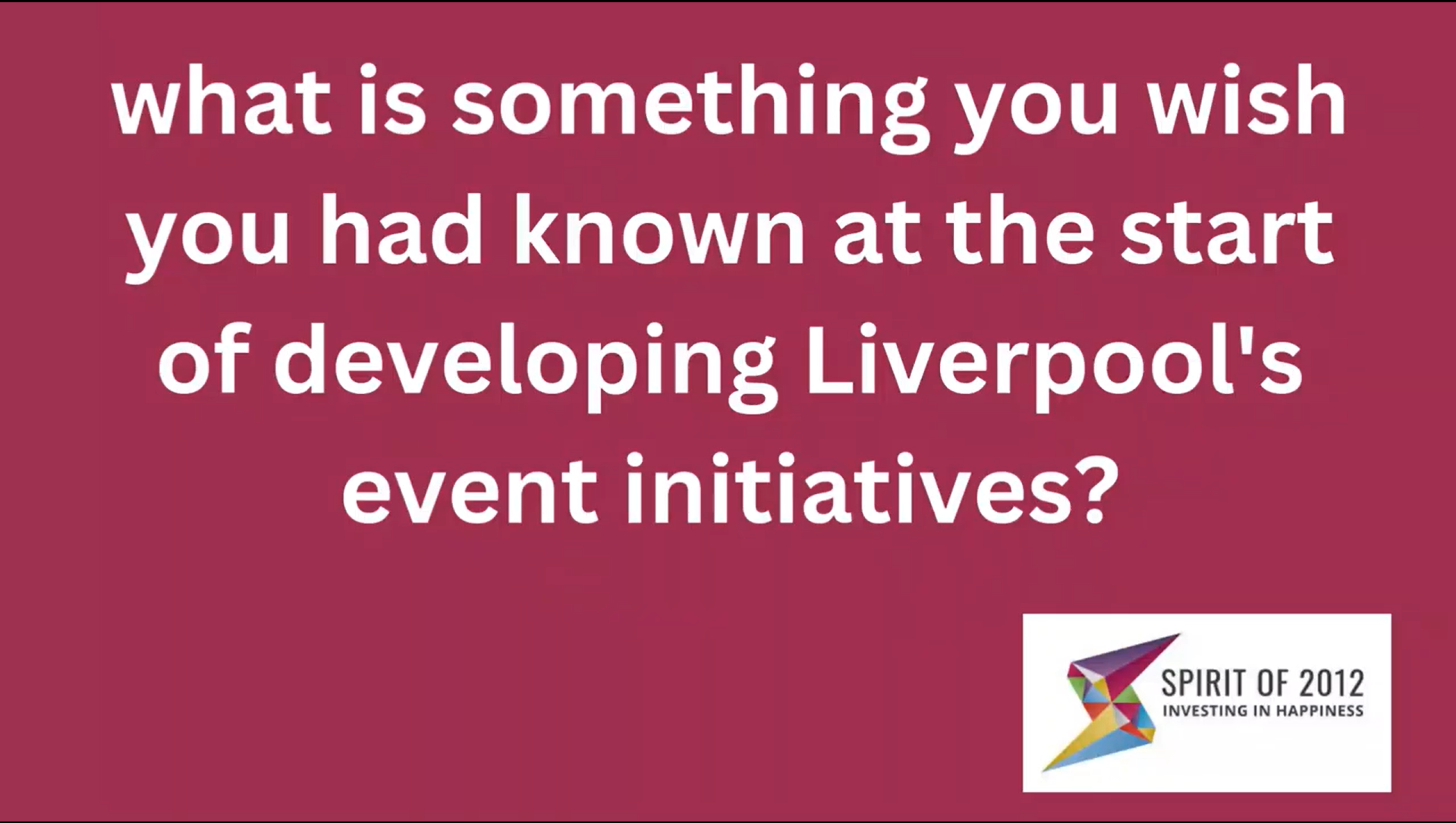A city regenerated by culture in the last two decades, organisers in Liverpool seek to build on this work with a new Events Strategy

Liverpool

Since the city’s year as European Capital of Culture in 2008, Liverpool has built a compelling identity as an ‘events city’, with an exciting portfolio of regular and one-off events which reflect the city’s proud cultural and sporting heritage. Liverpool has a strong history of deploying events as part of a process of wider social change. Their approach puts culture at the heart of regeneration, using events as catalysts to accelerate their ambition for a vibrant and exiting city where people are proud to live.
In 2023, Liverpool hosted the Eurovision Song Contest on behalf of Ukraine, a global spectacle with a with a profound impact at home, achieved through educational and community programming.
Work is underway to develop a major events strategy for the Liverpool City Region, as outlined in their Combined Authority Corporate Plan for 2024-28.
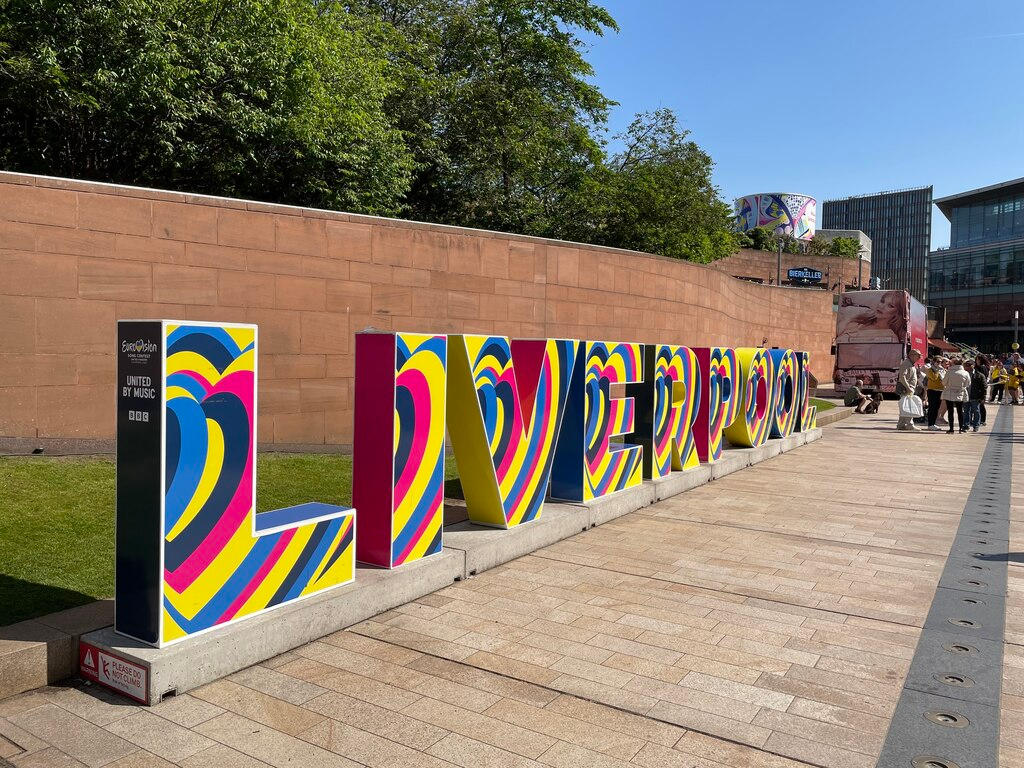
Steve RotheramNowhere does events quite like the Liverpool City Region. Whether it’s a community festival or a global spectacle, we know how to put on a show – and more importantly, we understand the power of events to bring people together. At their heart, events are about telling stories – about who we are, what we stand for, and the pride we have in our communities. And trust me, in our region, we’ve got some of the best stories to tell. Done right, the impact is huge. The economic benefits – from grassroots gigs to major city-wide celebrations – create jobs, boost local businesses, and bring in investment. But beyond the numbers, events have a way of connecting us to each other and to the places we call home. They inspire, they unite, and they showcase the talent, creativity, and character that make our region truly special. We’ve seen it first-hand with Eurovision, The Giants, and countless other cultural moments – when we take centre stage, the world watches. Events give us a platform to shape perceptions, to celebrate who we are, and to cement our place as a vibrant, welcoming, and world-class destination.
Mayor of Liverpool City Region
THE LIVERPOOL APPROACH
To showcase Liverpool’s approach to hosting events, we interviewed Claire McColgan CBE. Claire is Director of Culture, Major Events & Tourism for the City of Liverpool, and has led the city’s cultural events for 15 years. In November 2024, Claire’s role was expanded, to encompass the Liverpool City Region Combined Authority, meaning she will now support and develop the culture and visitor economy across the wider region.
What can we expect from Liverpool’s upcoming Events Strategy?
In this clip, Claire explains how the wider context of devolution means that this is the right time for Liverpool to put an events strategy down on paper, but that their ambition is guided by their experiences hosting events for the past fifteen years.
What has been the economic and social impacts of the major events Liverpool has hosted?
Here, Claire outlines the economic and social impacts which events have brought to Liverpool since 2008.
Economic impact is one thing, but if you’re not impacting on the lives of the people who live here, their passion, their drive and their commitment to the city, then why bother?
What is something you wish you had known at the start of your time developing Liverpool’s events?
Here, Claire talks about the focus, passion and commitment you takes to deliver events, as well as the emotional toll which they take.
Don’t listen to the noise, listen to the ambition that you’ve got for a place… the ambition you’ve got for the place needs to be bigger than the ambition you’ve got for the event needs to feed into the place.
CASE STUDY: EUROVISION 2023
In 2023, Liverpool hosted the Eurovision Song Contest on behalf of Ukraine. The event showed Liverpool’s approach at its best: a strong cultural offering which reflected the city’s values and the identity of its people. It integrated Ukrainian culture, with dedicated cultural programmes, public art installations, and community-led events celebrating Ukrainian heritage. The event had a particular focus on accessibility and inclusivity: large fan zones were set up to ensure that those without tickets could still participate, and organisers introduced sensory-friendly spaces for neurodiverse audience members.
According to the event’s evaluation, it generated an estimated £54 million for the local economy, with over 500,000 visitors coming to the city across the Eurovision period. The contest was also a global spectacle, reaching over 162 million viewers worldwide.
Beyond the economic boost, Eurovision 2023 had a strong social and cultural impact. The city implemented an inclusive volunteering programme, with over 1,000 volunteers supporting the event. The cultural programme, EuroFest, featured 24 commissions celebrating Ukrainian and Liverpudlian creativity, ensuring local communities were part of the experience.
To support the event, Spirit of 2012 awarded a £200,000 grant to Liverpool City Council to deliver Eurolearn, a schools engagement programme, and an evaluation report, led by the University of Liverpool, exploring the impact of Eurovision on the health and wellbeing of the residents of Liverpool. The key findings of the report paint a picture of an impactful and inclusive event which linked Liverpool and its people to a global community, fostering a sense of pride and connection. You can read the full evaluation report for Eurovision 2023 here.
But what can event organisers and hosts learn from Liverpool’s success?
Lessons & Advice for Future Event Strategies
- Events Can Bring People Together and Foster Pride in Place.
- Liverpool citizens were enthusiastic about their city hosting Eurovision. 74.1% of those surveyed were enthusiastic about Liverpool hosting the ESC on behalf of Ukraine and 80% of survey respondents felt proud that Liverpool had won the competition to host the Contest. Event organisers should consider the narrative they build around events, and capitalise on their power to bring communities together.
- Maximise Local Economic Benefits
- The event brought a surge in tourism, with hotels at 99% capacity and increased spending in local businesses. Cities should consider local procurement, and work with local businesses to ensure major events provide lasting economic opportunities and boost local economies.
- Extend Impact Beyond the Main Event
- EuroFest helped Eurovision’s influence spread beyond the arena, reaching over 200,000 people through cultural events. Community projects had enormous reach. Projects funded as part of Eurovision involved 367 organisations and engaged 36,000 active participants. Eurolearn projects were used by 257 schools, with 17,746 participants and Eurostreet/Eurogrant projects represented 77 community groups and schools with 11,904 participants. Future event strategies should include citywide engagement initiatives to create wider social participation.
- Match Events to Places
- Feelings about Eurovision were highly similar to feelings about Liverpool as a city. In-depth interviews probing the feelings of those involved in Eurovision community events showed a strong overlap in the words participants used to describe Eurovision and Liverpool itself. This reflects the suitability of Liverpool as a host city for Eurovision – a vibrant and inclusive place with a love for music hosting Europe’s biggest party. When bidding for events, you should consider whether or not the event is right for your place.
By adopting these approaches, cities and regions can ensure that events reflect the character of their place the people living there, ensuring that local people buy-in and feel represented and empowered to take part.
